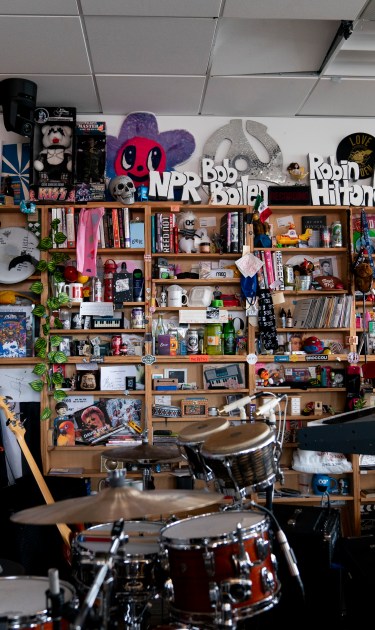NPR’s Tiny Desk is finally heading south. The iconic live-performance series, known for its intimate sessions that often boost careers, announced on September 2 its first Latin American spinoff: Tiny Desk Brasil. And that sparks the obvious question: Why was Brazil picked over other countries with booming music markets like Mexico, Argentina, or Colombia?
The answer lies in both Brazil’s cultural weight and the opportunity to fill an evident gap. Brazil has one of the richest musical heritages in the world, with samba, bossa nova, funk, MPB, and tropicália, to name a few. Also, it is Latin America’s biggest music market and the ninth-largest in the world, with fans among the most active streaming audience. From a strategic standpoint, starting with Brazil makes total sense.
Nevertheless, there’s a more layered story here. A lot of Brazilian artists have already appeared on Tiny Desk in the last couple of years. Seu Jorge brought samba and storytelling charm to the desk. Liniker, one of Brazil’s brightest R&B voices, gave a soulful performance. Grammy-winning jazz singer Luciana Souza showed all her technical brilliance, and Milton Nascimento, performing with Esperanza Spalding, reminded the world why he’s considered a Brazilian living legend. These performances prove there’s an appetite for Brazilian sounds. But they’ve always come as one-offs and not as part of a regular platform, preventing Brazilian artists from fully experiencing the power that Tiny Desk can offer.
If we take a look at what happened with CA7RIEL & Paco Amoroso, the Argentine duo rose to global recognition after their Tiny Desk performance in October last year. The viral video opened new doors for them in the mainstream market. Since then, they’ve been touring across South America, the U.S, and Europe, performing on U.S. TV shows, and participating in all the major festivals around the world. Tiny Desk definitely gave them the kind of push indie artists dream of, which is still a rare launchpad into the global mainstream. From an audience perspective, the performance has revealed the appetite for more genre diverse Latin American music on the platform, as their performance became the 11th most viewed ever.

That’s why the arrival of Tiny Desk Brasil is so exciting. For Brazilian indie musicians, this platform could provide the same boost, giving them visibility far beyond Spotify playlists or local stages. By stripping down the music and focusing on storytelling and intimacy, Tiny Desk offers a global audience the chance to connect with artists as people and storytellers, not just performers. And that intimacy can translate across borders. But it’s also true that Brazilian artists, more than most, face an uphill climb. That’s why this spinoff feels both urgent and risky. While undeniably needed, the language barrier could still reinforce the bubble, keeping performances consumed within Brazil rather than crossing into the global mainstream.
Latine music as a whole has been working to break free from that bubble. To some extent, Spanish-language reggaeton and música mexicana have made strides in the global mainstream, but Portuguese hasn’t broken through at the same level. Brazilian popstar Luisa Sonza told Billboard last year that she was aiming for an international career while singing only in Portuguese — a bold choice, though one that makes global crossover harder. Her biggest spikes on international charts usually come when she collaborates with American artists, like Demi Lovato or Joe Jonas. Ludmilla, on the other hand, has rebranded her sound from funk carioca to pagode, performed at Coachella in 2024, and worked alongside Sean Paul and Snoop Dogg. Both Luisa and Ludmilla are fully mainstream at home, yet they still face an uphill battle to achieve the same status globally. And if Brazil’s biggest pop stars struggle to break through, imagine how much tougher it is for indie artists without those resources or collabs.
So the challenge for Tiny Desk Brasil is clear. It can’t just be another stage: it has to be a bridge. If done right, it could finally give Brazilian music the global push it has been waiting for, placing it firmly within the broader Latine and global mainstream. And if successful, it could help indie artists achieve the kind of breakout that CA7RIEL & Paco Amoroso enjoyed, turning intimacy into opportunity, and the local energy into global recognition.

